Kim Oliver S. De Silva | BA Philippine Studies | Lingg 197 (Special Topics in Linguistics: Audiovisual Translation)
Posted on January 26, 2024
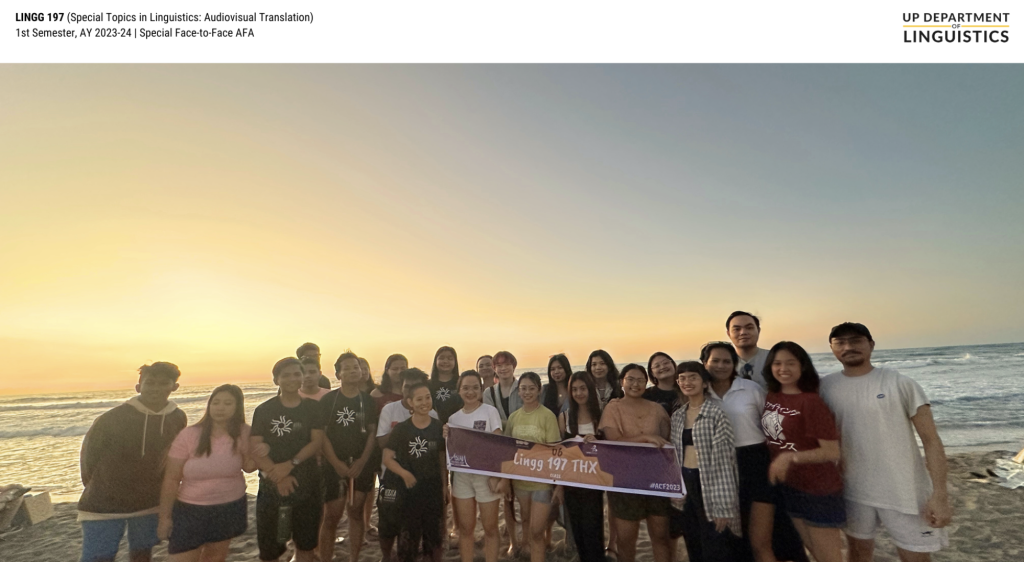
Every Iskolar ng Bayan has a story to tell.
As I approach the end of my undergraduate studies at the University of the Philippines Diliman, the statement above which I told myself almost five years ago resonates within me. The journey to discover my ‘story’ unfolded during our Linguistics 197 (Special Topics in Linguistics: Audiovisual Translation) class as we immersed ourselves with the blind community held last December 16-18, 2023, in San Juan, La Union, in collaboration with Hiraya Collective for the Blind.
This was no ordinary field trip; it was a purposeful endeavor aimed at understanding how individuals in the blind community navigate life even in the absence of complete vision. Initially, the idea of joining this off-campus activity intrigued me, orchestrated by our instructor who presented compelling aspects: blind individuals “watching” movies, playing sports, and engaging in recreational activities. Despite these enticing points, I hesitated, questioning if it was merely another trivial extracurricular activity not worth my time and money. I was mistaken.
The two-day immersion became the highlight of my senior year, fostering camaraderie among classmates turned friends. Together, we delved into Hiraya Collective’s projects, discovering it as one of the country’s leading organizations focusing on accessible learning for the blind and visually impaired. A pivotal moment occurred at Lorma Colleges, where face-to-face training taught me what it is like to walk with someone in the blind spectrum. We were given instructions on how to guide them when walking inside a building and in a recreational space. It shattered misconceptions, revealing that blind and visually impaired individuals are not helpless; they are as capable as anyone, even in the absence of complete sight.
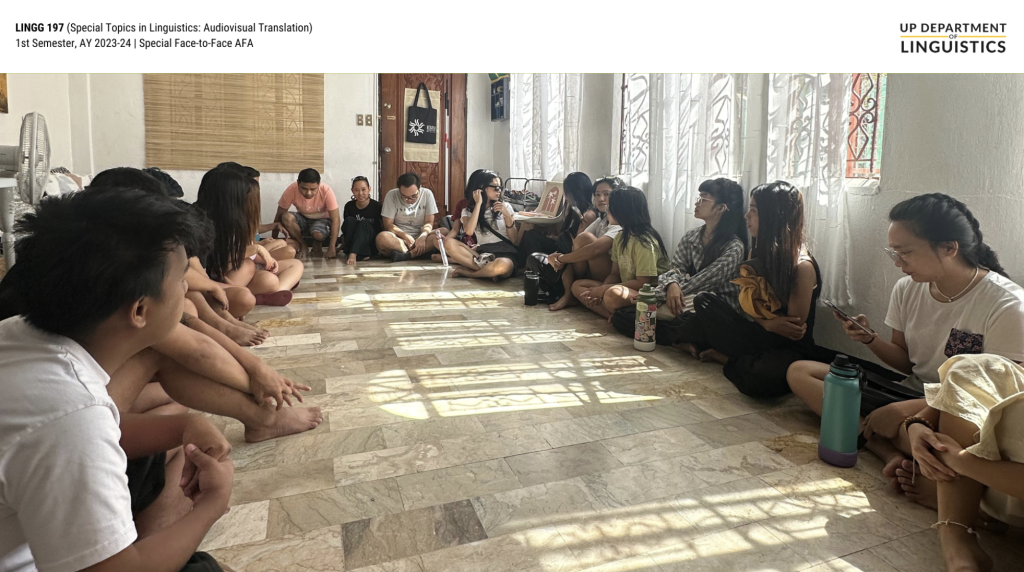
Listening to individual stories during mealtime and workshops unveiled narratives of hope, determination, and the will to overcome boundaries. The class, fueled by genuine curiosity rather than compliance, embraced the culture of Hiraya Collective — a community that transcends mere advocacy to become a supportive and inclusive family. I learned how to actively listen and make use of my senses aside from sight, making me realize how much more there is to improve about myself. The activities we had opened my eyes to the perspectives of the visually impaired community who all long to be treated equally.
My experience in the field activity prompted me to scrutinize a lot of what has been happening in our society lately. As a student of BA Philippine Studies, we are always challenged to analyze the present-day issues our country is facing. I realized that Hiraya Collective advocates not only for the blind community but for holistic change encompassing every citizen’s basic needs and rights. Beyond the blind community’s immediate circle, the organization addresses the essential requirements of all Filipinos, regardless of socio-economic status, skin color, gender, or disability.
In UP, we are always taught to be of service to the nation; that we are in debt to the Filipino people who constantly put up a tireless effort to make our quality education possible. Our immersion with Hiraya Collective expanded my perspectives to the many calls of our people that are still left unanswered–and one of these is pushing for an inclusive society which necessitates the inclusion of all and not some. It made me realize that you can’t just push for the rights of one; it has to be holistic and caters to the needs of every person.
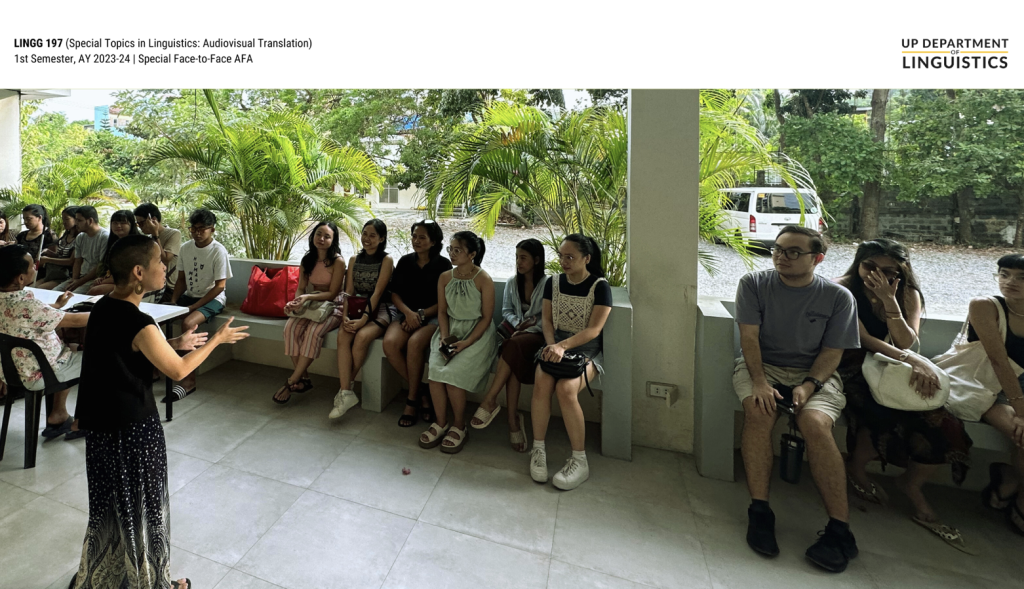
The task of being an Iskolar ng Bayan could mean going outside the confines of the classroom and not just relying heavily on theoretical foundations taught in class. Sometimes, we are overwhelmed by how much of a quality education we receive that we tend to forget why we are in UP in the first place. Field activities like what we had helps us realign our purpose and our place inside and outside of the university. I am beyond grateful for being part of this off-campus activity with Hiraya Collective because I was able to see how the lessons we learn in class materialize not just in the papers we write but also in the lives of the people.
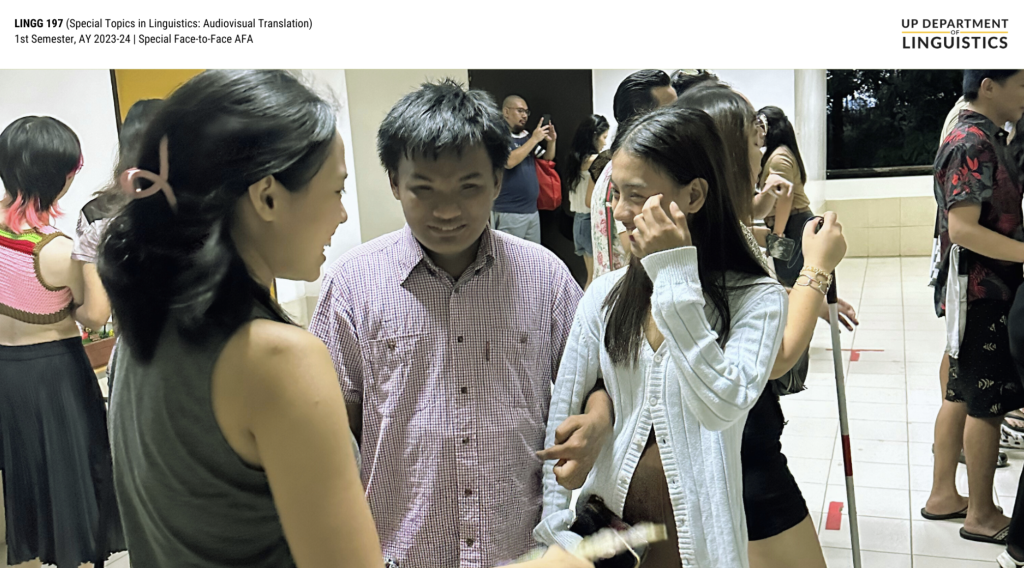
My UP journey does not simply end by finishing an undergraduate degree. Graduating from the University marks the commencement of a broader commitment. There is still a lot to do out there. But for now, I can simply say that as an Iskolar ng Bayan, I have found my own story to tell through our off-campus activity in La Union: that I was honed by the University to be of service to the Filipino people no matter their status and background. With all of these, I will be ready to answer the call.
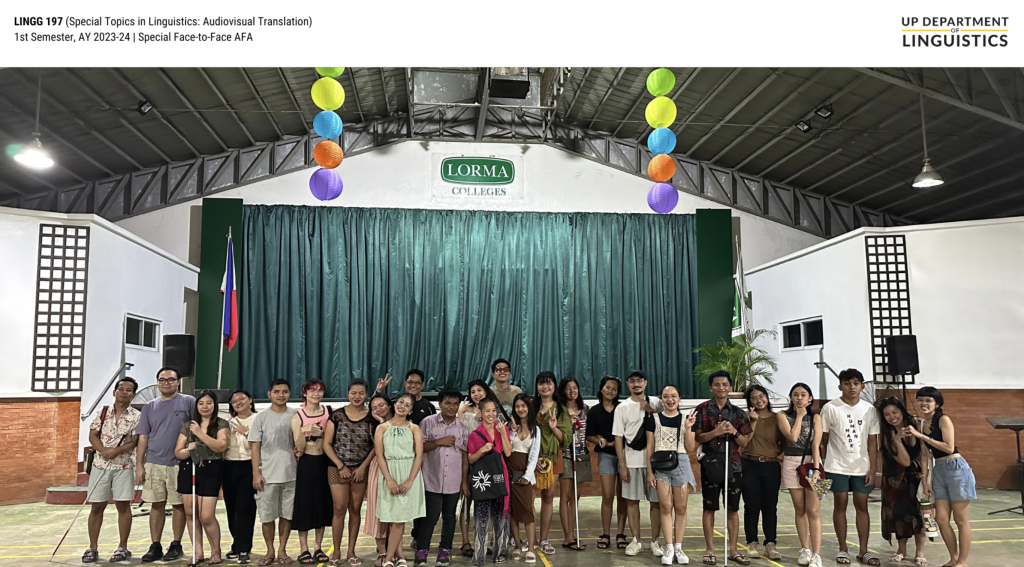
Kim Oliver S. De Silva, a native of Bulacan, completed his Associate of Arts in Malikhaing Pagsulat sa Filipino (AAMPF) at the University of the Philippines Diliman in 2021. After his AA degree, he is set to earn his Bachelor of Arts in Philippine Studies with a concentration in Malikhaing Pagsulat and Linguistics this 2024. His research interests revolve around the following topics: writing stylistics, special issues related to spelling standardization, and sociolinguistics.
